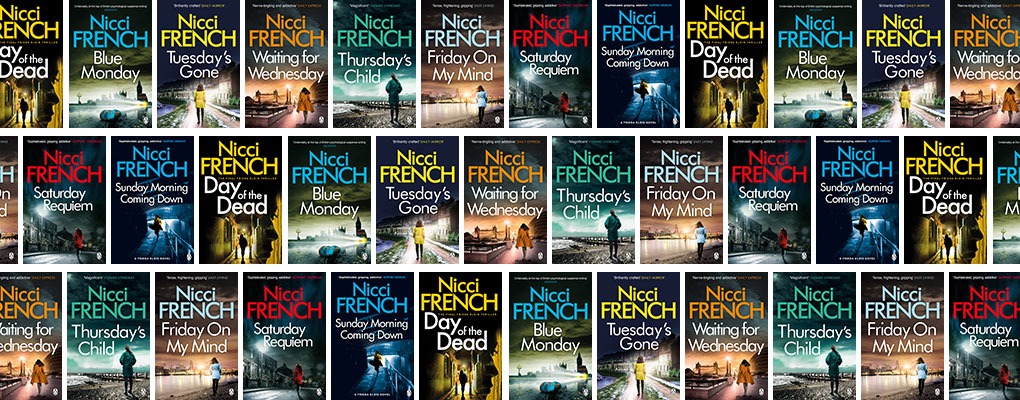Books
Introducing Frieda Klein
Ten years ago we had the idea of a detective who wasn’t really a detective, of a detective who didn’t want to be a detective. Frieda Klein was not so much an idea we had as a person who suddenly arrived in our life.
We started talking about a woman who believes the world is a terrible, dangerous, chaotic place that we cannot control. What we can perhaps make some attempt at controlling is the darkness and disorder of our minds. So she is a psychotherapist, and a very gifted one, with a sixth sense for people’s secrets. She enables people to confront their problems in the sanctuary of her consulting room.
What, we started asking, if we took this character and dragged her out into the chaos of the world? What if this closeted, private woman found that she had a gift for solving crimes? After all, isn’t a psychotherapist a sort of detective? Psychotherapists look at the ‘crime scenes’, the bad feelings, the destructive patterns, the traumatic memories; they search for clues. Out of this they construct a narrative and lead their patient out of the darkness into the light.
The more we talked about Frieda, the more she took on a life of her own. She lived in London – well, of course she lived in London, that city full of secrets, haunted by past. She not only lived in London but took long solitary walks through it, in the middle of the night, tormented by her inability to sleep. In particular, she walked along London’s lost, hidden rivers. Even most Londoners don’t know about these rivers – the Fleet, the Tyburn, the Walbrook, and many others – built over, forgotten, but still flowing underneath. They seemed like a perfect image for what psychoanalysts and detectives do, search out crimes and secrets that are hidden, buried, but still leave their traces in the landscape.
Once we set Frieda going, we discovered that though she was solitary, she gradually attracted a fiercely loyal group of friends: a troubled niece, an independent-minded police detective, a Ukrainian builder leading a semi-clandestine life in the UK.
During the following years, Frieda found herself investigating kidnapping, murder, fraud, sexual assault, and crimes reaching into her own circle, her own past. She moved through a London most of us never see, the fugitive, the immigrant, the abandoned. As the series we started to explore the toll that this took on her, what it is like to have a gift that is also a curse.
In this series, Frieda was involved in eight different investigations. But more than this, there is a story that runs through all the books, a fuse that was lit in the first book and has burned through all of the stories. When we first thought of Frieda Klein and began her journey in Blue Monday, we didn’t have a fully-formed idea of all she was going to go through. That was a process of discovery for us, as she changed and the city she lived in changed. But we knew that it was going to reach it’s climax in the final book: Day of the Dead, the day when the living mingle with those they have lost, a day of ghosts and memories and farewells.
Find out more about Day of the Dead by Nicci French here, or take a look at Nicci French’s Frieda Klein books in order here.
1 Comment
Join the discussion
Please note: Moderation is enabled and may delay your comment being posted. There is no need to resubmit your comment. By posting a comment you are agreeing to the website Terms of Use.



When I first read Sunday Morning Coming Down, having immersed myself in the other books and been gagging for a resolution, when I came to the end I jumped up and down and screamed ‘No! You can’t! You can’t leave it this way!’ I went around for weeks chuntering ‘there must be another book. there must! You can’t leave it like this!’ It was a very clever move to do this to us; seeming to end the series on the seventh day but having another book up your sleeves. Hats off to you for a series which I not only enjoyed but lived: I know Frieda’s house, I dine with Olivia and hang out on building sites with Josef; I commiserate with Ruben and fear for Sasha. I am Chloe’s friend (or would be if she let me). But along with most of your readers I have to let you know, I have suffered for your art.